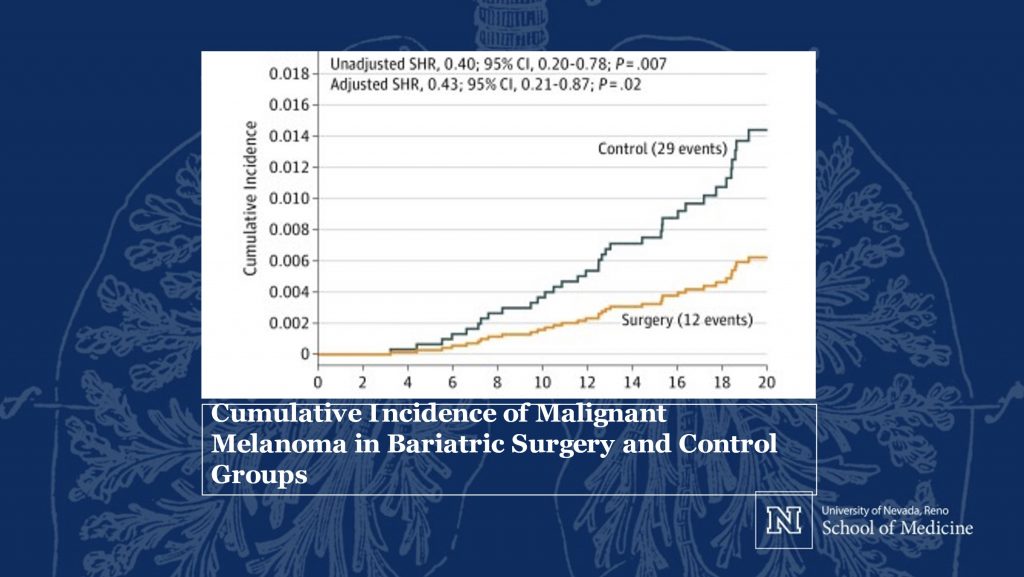As we know, obesity increases the risks of many serious adverse health conditions, including many types of cancer. A 2020 study reported in the Journal of the American Medical Association Dermatology evaluated more than 4,000 individuals over a 20-year time frame and found that skin cancer, including malignant melanoma, occurred far less often among those individuals treated with metabolic surgery. As the authors write, “These findings suggest that melanoma incidence is significantly reduced in patients with obesity after bariatric surgery and may lead to a better understanding of melanoma and preventable risk factors.”
From the Study
- The Swedish Obese Subjects study is a long-running non-randomized controlled trial. There were 2007 participants in the surgery group and 2040 participants in the control group.
- Data on cancer incidence was gathered from the Swedish National Cancer Registry.
In a nice summary put together by Emma Bockius, student physician assistant at the University of Nevada School of Medicine, the reduced rate of malignant melanoma is depicted over the 20-year time frame in the graphic below.

The link between obesity and cancer risk is well-established. Extensive research shows that excess body fat increases your risk for numerous cancers, including colorectal, breast, uterine, pancreatic, esophageal, and kidney cancers. The link to skin cancer, although suspected, has not been as well established until this long-term study from Sweden.
The link between cancer and obesity is believed to stem from both hormonal changes and a chronic pro-inflammatory condition of the body that occurs in obesity. The long-term hormonal changes of metabolic surgery shift some key hormonal drivers of inflammation and insulin resistance to lower, more normal levels. And that has long term benefits of reducing cancer risk. Studies of metabolic surgery have previously demonstrated a reduction on cancer of all types, as well as reductions of many specific cancers.
This new study, over a 20-year time period with high quality national registry data, confirms that surgery reduces the risk of skin cancer as well.
Taube M, Peltonen M, Sjöholm K, Anveden Å, Andersson-Assarsson JC, Jacobson P, Svensson PA, Bergo MO, Carlsson LMS. Association of Bariatric Surgery With Skin Cancer Incidence in Adults With Obesity: A Nonrandomized Controlled Trial. JAMA Dermatol. 2020 Jan 1;156(1):38-43. doi: 10.1001/jamadermatol.2019.3240. PMID: 31664428; PMCID: PMC6822159.




